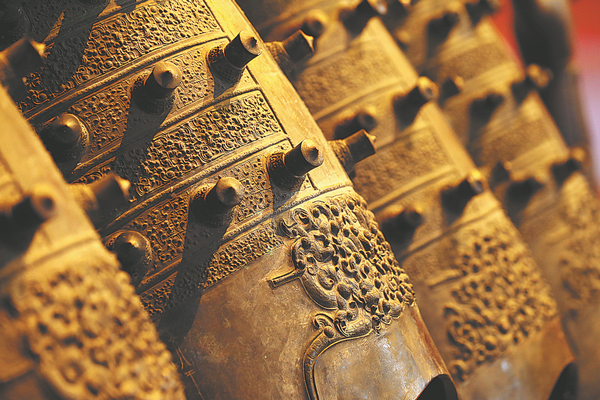

The same year, he traveled to Hubei province in Central China to visit the provincial museum, which is known for its collection of the 2,500-year-old bronze chime bells of Marquis Yi of the Zeng State. In 1978, those bells were found from the tomb of Yi in Suizhou, Hubei. Each of the bells produces two sounds. The whole set has a range of five octaves, with a complete 12-tone scale. Scholars have described them as the greatest achievement in the development of musical instruments in China before the Qin Dynasty (221-206 BC).
Since then, the composer has been researching on and experimenting with the instrument. In 2018, Zollitsch launched his bianzhong project, titled Bells Renaissance, with a series of compositional works based on the sounds of the bells.
In 2007, he adapted a set of poems, Jiu Ge, or Nine Songs, by Qu. One of Qu's poems, titled Shan Gui, or Ghost of Mountains, was composed for the bianzhong by Zollitsch. At that time, he could not find bianzhong musicians to perform the piece and had to turn it into chamber music instead. In 2013, he composed another bianzhong piece titled Resounding Chime as part of a collaboration with Yan Huichang, the artistic director of the Hong Kong Chinese Orchestra, which premiered in Hong Kong in 2014.
"The bells are an incredible instrument, certainly the world's most spectacular music archaeological finding ever. Of course, it will never become a popular instrument, since it is far too big and its sound is very special and not very flexible. But with its archaic tone, its incredible power and its overwhelming historical meaning, it certainly deserves a special place on the big stages of the world," says Zollitsch.